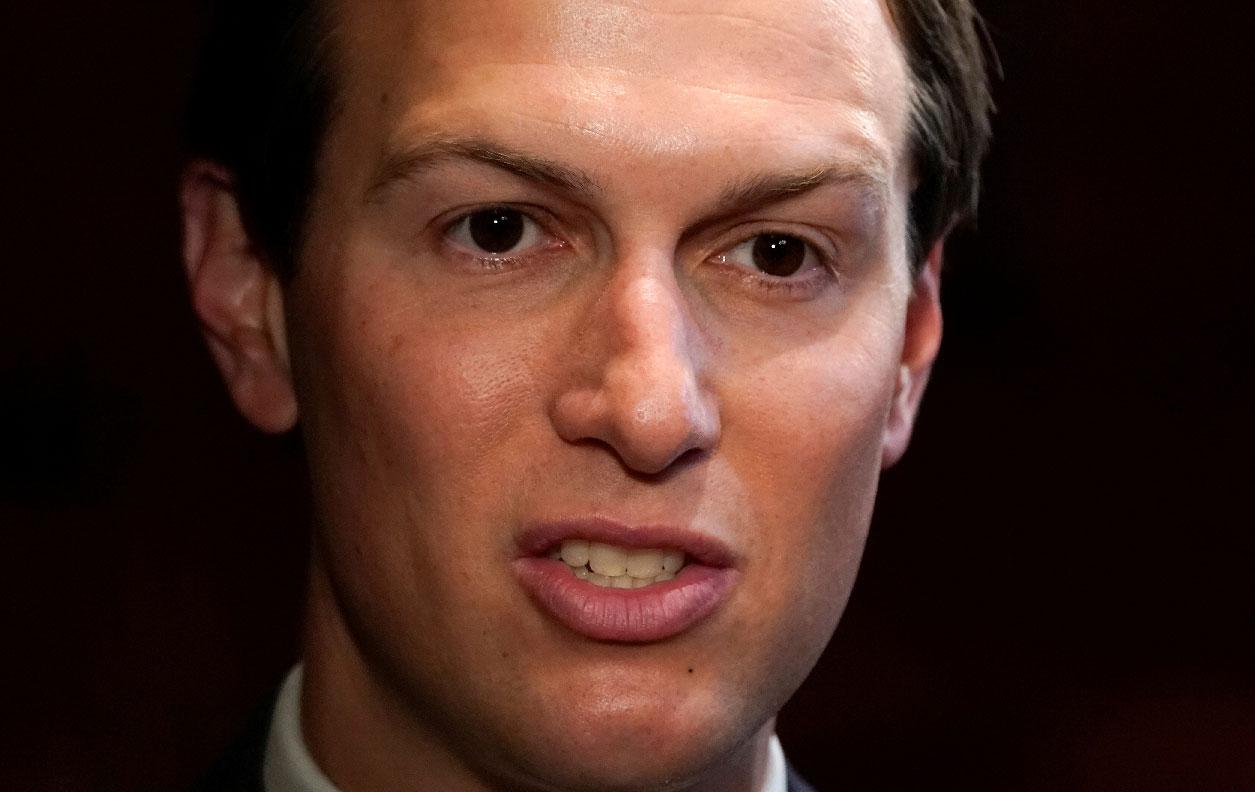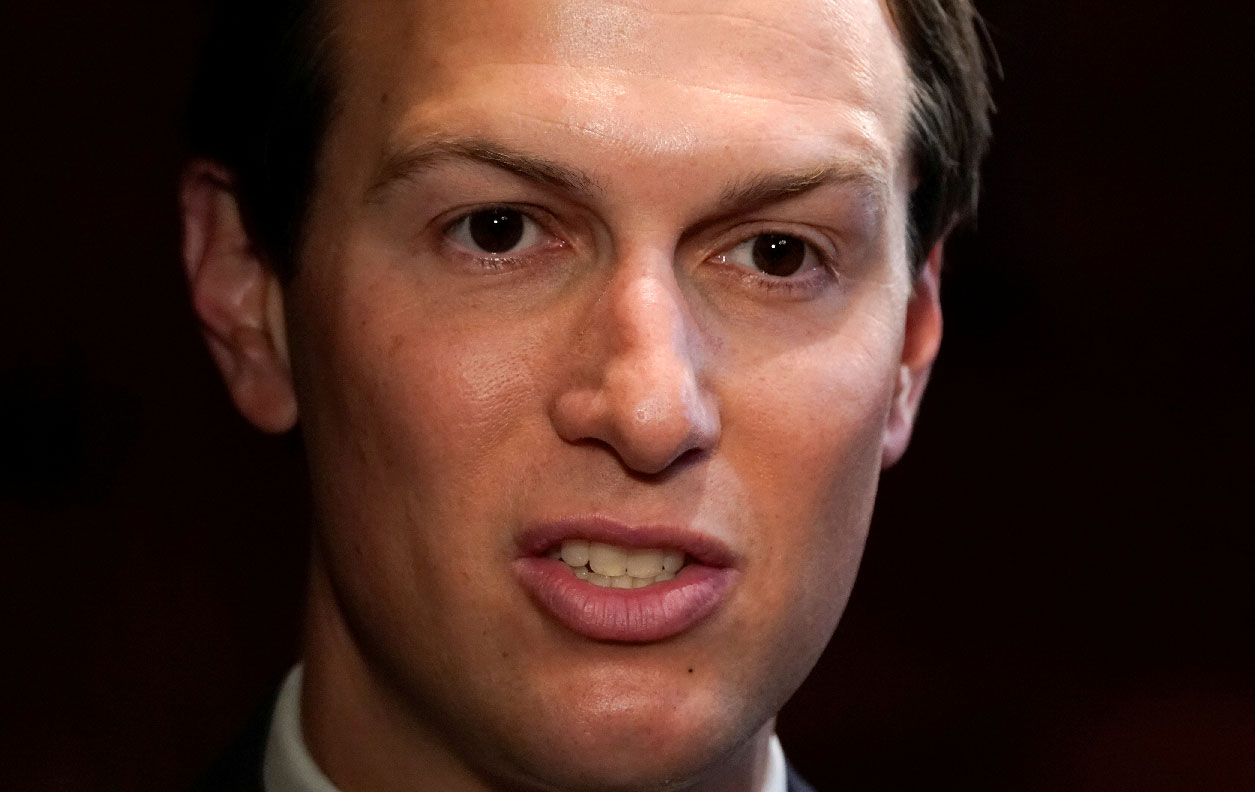Kushner says Arab states should absorb Palestinian refugees
WASHINGTON - Jared Kushner hinted Wednesday that his Middle East peace plan will seek to better integrate Palestinian refugees inside Arab countries as he finalizes proposals despite being shunned by the Palestinian leadership.
A week after he convened an economic workshop in Bahrain that dangled the prospect of $50 billion in investment under a peace deal, President Donald Trump's son-in-law and advisor said he will announce the next steps "probably next week."
Kushner, promising a fresh approach to Middle East peacemaking after decades of failed attempts, said the Trump administration deliberately opened with economic incentives and will later give details on core political questions.
But in a conference call with Arab media, Kushner appeared to favor normalization of the status of Palestinian refugees who fled or were forced out of Israel when the Jewish state was created in 1948, as well as their descendants.
'Exists because it exists'
Noting that a similar number of Jews fled or were expelled from Arab countries, Kushner said: "What's happened to the Jewish refugees is they've been absorbed by different places, while the Arab world has not absorbed a lot of these refugees over time."
"This situation exists because it exists. And when we put out a political solution, we're going to try to put forward the best proposed solutions that we think are pragmatic, achievable and viable in this day and age," he said.
Israeli Prime Minister Benjamin Netanyahu has long suggested a demographic tradeoff between Jewish and Palestinian refugees, although Palestinians see this as an attempt to shift Israel's responsibility for expelling indigenous Palestinians, destroying their villages and seizing their land during the founding of the Israeli state.
Palestinians say Israel should address its concerns about the fate of Jewish refugees in other Arab countries to the governments of those countries.
Asked about Lebanon -- where Palestinian refugees are mostly denied citizenship and many live in squalid camps -- Kushner said he believed that the country, long torn by communal tensions, wanted a "fair" solution.
"I also think that the Palestinian refugees who are in Lebanon, who are denied a lot of rights and don't have the best conditions right now, would also like to see a situation where there is a pathway for them to have more rights and to live a better life," Kushner said.
Kushner's comments on Palestinian refugees are likely to raise concerns among Palestinians.
Whether the hundreds of thousands of refugees who were ethnically cleansed during and after the 1948 war of Israel's founding, which with their descendants now number around 5 million, will exercise a right of return has been among the thorniest issues in decades of difficult diplomacy.
Israel has long ruled out any such influx as destabilizing, arguing that refugees should stay where they are or in a future Palestinian state. But prospects of such a state arising in the occupied West Bank and the Gaza Strip are themselves in doubt, and many Palestinians cite decades of unconditional US support to Israel as the reason.
Nikki Haley, the former US ambassador to the United Nations, said during a Jerusalem visit last week that Washington has its own figure for Palestinian refugees.
"The number of actual Palestinian refugees is classified," she told a conference hosted by the conservative Israel Hayom newspaper. "There are multiple people working to get it unclassified."
Wide Palestinian suspicion
The Palestinians accuse the Trump administration of trying to use money to force pro-Israel solutions and are suspicious of Kushner, a family friend of Netanyahu and a sponsor of illegal Jewish settlements.
Trump took the landmark step of recognizing the bitterly disputed, Israeli-occupied city of Jerusalem as Israel's capital and Kushner earlier suggested that his plan would not mention a Palestinian state, a longtime goal of US diplomacy.
A poll released Wednesday found that an overwhelming 90 percent of Palestinians do not trust the Trump administration in its stated goal in Bahrain of helping the Palestinian economy.
Seventy-nine percent backed the leadership's boycott and a similar number called the participation of Arab nations such as Saudi Arabia an abandonment of the Palestinian cause, said the survey by the Palestinian Center for Policy and Survey Research of 1,200 adults across the West Bank and Gaza Strip.
But Kushner nevertheless said the Palestinian leadership looked "very foolish" for its boycott, saying it had not shown any better way to improve the livelihoods of its people - despite the consensus among Palestinians that his plan offers no practicable solutions.
"It's been more hysterical and erratic and not terribly constructive," Kushner said of the Palestinian reaction.
But Kushner said that Trump, who values personal interaction, was open to meeting Palestinian president Mahmud Abbas.
Trump "likes him very much personally and, at the right time, if they're willing to engage I believe that they'll find that they will have an opportunity," Kushner said.
He said he believes Abbas wants peace but "certain people around him are very uncomfortable with the way we've approached this, and their natural reaction is to attack and say crazy things" that are not constructive.
The United States has also severely slashed funding for the UN refugee body that provides education and health services to five million Palestinians in Jordan, Lebanon, Syria, the Gaza Strip and the West Bank, including east Jerusalem.
The Trump administration has called for the 70-year-old United Nations Relief and Works Agency for Palestine Refugees to be dismantled, with its work taken over by host countries.



